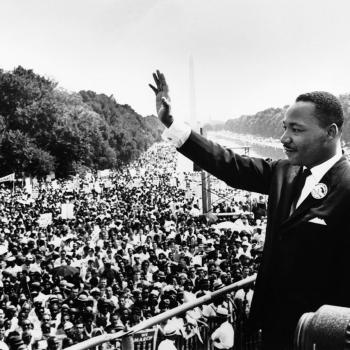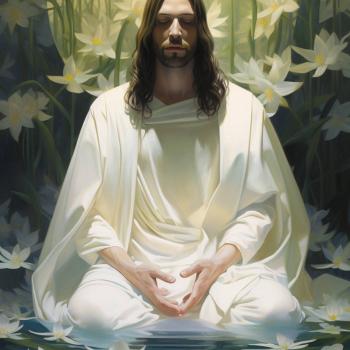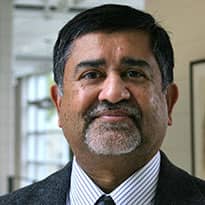To the Hindu, man is not travelling from error to truth, but from truth to truth, from lower to higher truth. To him all the religions, from the lowest fetishism to the highest absolutism, mean so many attempts of the human soul to grasp and realise the Infinite each determined by the conditions of its birth and association, and each of these marks a stage of progress . . . (The Complete Works of Swami Vivekananda, p. 17)
Ronald Neufeldt, in response to Vivekananda's 1893 speeches, asserts that Vivekananda was seeking for Hinduism a place at the top of the heap ("Reflections on Swami Vivekananda's Speeches at the World Parliament of Religions, 1893," Journal of Hindu-Christian Studies: Vol. 6, Article 4, 1993). But that is the reaction of the Western observer who cannot see the world except in hierarchical terms. Since Hindus don't seek to proselytize, to convert the other into their ways of being and believing, one should be able to acknowledge the power of their argument that all individuals and groups seek their own path to God without, in turn, reading it as some kind of supremacist claim to "god knowledge." As David Frawley argued in his address to the Bangalore Initiative for Religious Dialogue in March 2012,
We all inherently belong to the one religion that is the basis of all life. There are certain natural religious tendencies in all human beings: capacities for devotion, service or meditation, for example, which different religions adapt or mold according to their own views, considerations or compulsions. The ultimate goal of religion is to know the Divine, which is to know one's Self. This means that religious conversion is only an outer phenomenon and may be of no value at all. We are all inherently one with the Divine. Spirituality is a self-discovery, which is a shedding of outer attachments. This at least has been the Hindu approach through history, which has never embraced any aggressive form of conversion. A universal approach to religion should approximate this natural religion of humanity, with its efforts to relate to the sacred nature of all life and to discover the spiritual nature of one's own being. Hinduism to a great extent has been able to do this and most great Hindu teachers continue to strive in that direction.
Of course, I need not invoke the word "Hindu" or "Hinduism" here to make my point. The great sages of India recognized intuitively the paradoxical nature of claims and identities, and so sought to distance themselves from all labels and all affiliations. We can do that here. But we need to go beyond "faith" since Hinduism and Buddhism are experience and knowledge-based affiliations, and the label "faith" can only be loosely tied to them. What we can say, however, in closing is that unless we open up the field of faith to enquiry and stop marking our territory as the only "holy" territory, we will continue to live in a conflicted world. If we seek peace, then we should be willing to let go of our monopolistic claims to heaven and to God. If we wish to build a brotherhood and sisterhood of understanding, then we should be ready to stop our aggressive agenda to convert the other.
This is the slightly edited text of the remarks I made at the World Conference of Religions, in Washington, DC, on November 30, 2012.
:::page break:::




